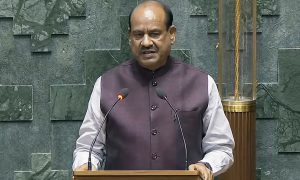Finance Minister Nirmala Sithraman on Saturday announced that the FDI limit in Defence production was being raised to 74% from 49% for FDI through the automatic route as part of reforms in the defence sector to boost self-reliance. Ban on import of certain defence equipment and the corporatization of defence ordinance factories were some other important steps announced by the minister.
“It will have the security clearances and everything else as always,” Sitharaman said referring to the hike in FDI through the direct route.
In other major reform in the defence sector, she announced a timebound defence procurement process and faster decision making by setting up of a Project Management Unit to support contract management.
This will also include a “realistic” setting of General Staff Qualitative Requirements (GSQR) of weapons/platforms and overhauling of trial and testing procedure.
“Sometimes unrealistic quality requirements are established and quite a lot of time is spent in searching for suppliers who will meet all those requirements, you will end up with just one supplier and since buying from a single supplier is not permitted, you do the entire circle all over again,” said Sitharaman.
In perhaps the most defining reform in the defence procurement area, the government announced to notify a list of weapons or platforms that will be banned for imports with year-wise timelines. This would mean that India will have to compulsorily develop technology for those defence systems/platforms. This will prove to be a big boost to the Make in India initiative, said Anurag Thakur, the deputy finance minister.
Some other associated measures like indigenisation of imported spares and separate budget provisioning for domestic capital procurement will help reduce the huge defence import bill.
The government also reiterated its plan to corporatize the much-maligned Ordnance Factory Board to improve autonomy, accountability and efficiency.




























 WhatsApp us
WhatsApp us